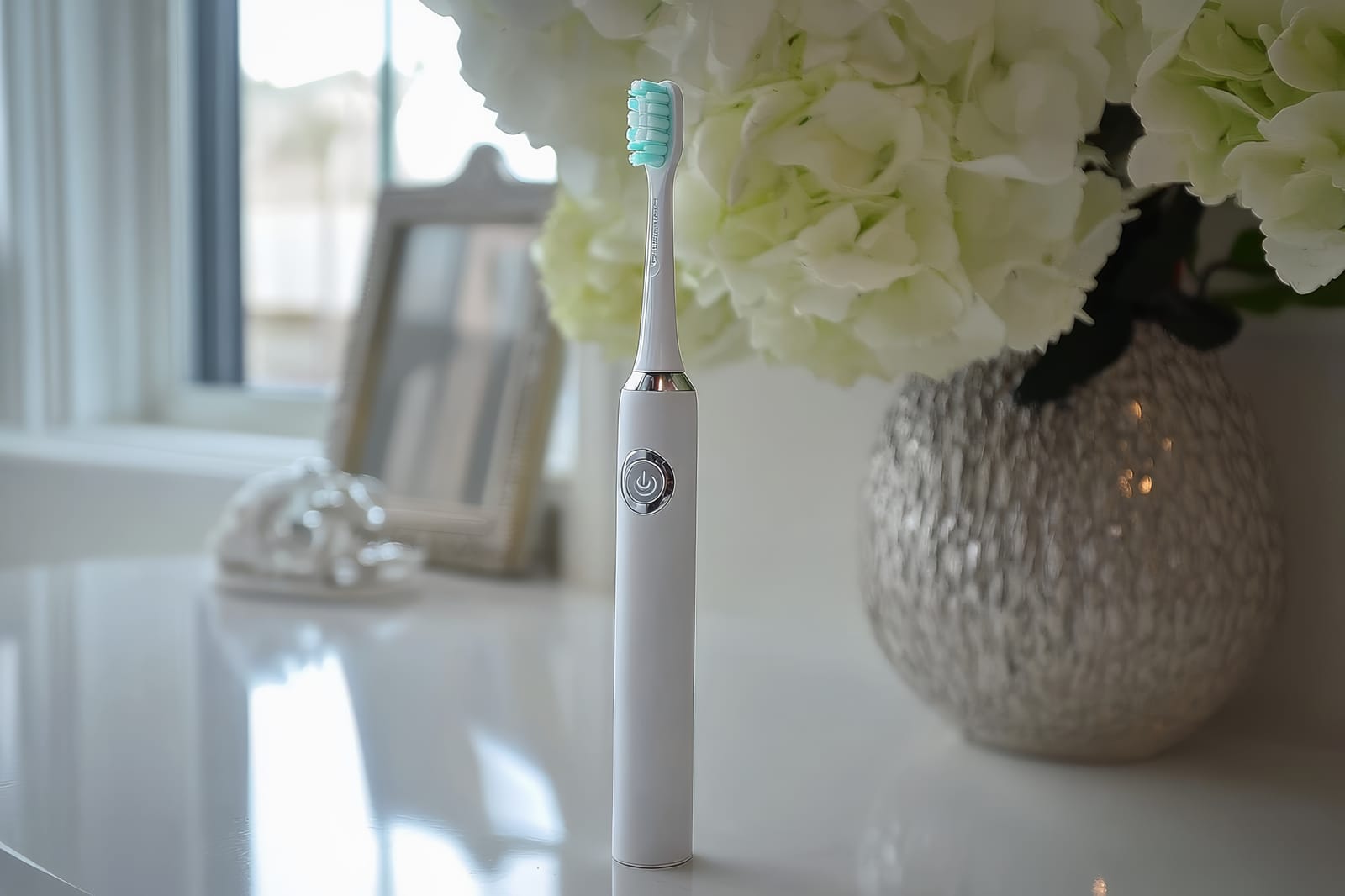 Most people have 32 permanent teeth, made up of four different types: incisors, canines, premolars, and molars. While our primary(baby) teeth are mostly composed of a single type of material, our adult teeth are a mix of different materials, known as composites. For example, the front teeth (incisors) are mostly composed of enamel, while the back teeth (molars) have a higher proportion of dentin. This variation in composition is due to the different functions of each type of tooth. The incisors are designed for cutting and slicing food, while the molars are better suited for grinding and chewing.
Most people have 32 permanent teeth, made up of four different types: incisors, canines, premolars, and molars. While our primary(baby) teeth are mostly composed of a single type of material, our adult teeth are a mix of different materials, known as composites. For example, the front teeth (incisors) are mostly composed of enamel, while the back teeth (molars) have a higher proportion of dentin. This variation in composition is due to the different functions of each type of tooth. The incisors are designed for cutting and slicing food, while the molars are better suited for grinding and chewing.
The different materials in our teeth also have different properties. Enamel is the hardest substance in the human body, whereas dentin is much softer. This difference is important because it helps to protect the more vulnerable parts of our teeth from damage. For example, if you bite into something hard (like a candy bar), the enamel will take most of the force and prevent the dentin from being damaged.
Composite teeth are strong and durable, but they can still be damaged by cavities and gum disease. That’s why it’s important to brush and floss regularly, and see your dentist for regular checkups. By taking good care of your teeth, you can help them last a lifetime!
What are Composite Teeth and What are They Made of??
There are two types of teeth in the human mouth: primary and permanent. Primary teeth, also called baby teeth, are typically made of a softer material than permanent teeth. They are also smaller in size and have fewer roots. Permanent teeth, on the other hand, are larger and have more roots. They are also made of a harder material, which helps them to withstand the wear and tear of chewing over a lifetime. Composite teeth are artificial teeth that are used to replace one or more natural teeth. They are usually made of porcelain or plastic, and they can be designed to closely match the color and shape of natural teeth. In some cases, composite teeth may also be used to improve the appearance of the smile by correcting issues such as gaps or misshapen teeth.
How do Composite Teeth Work and How Long do They Last?
Composite teeth are made from a combination of different materials, including porcelain, metal, and plastic. This type of tooth is designed to closely match the color and appearance of natural teeth. Composite teeth are often used to fill in gaps or to repair damage from chipped or cracked teeth. In terms of function, composite teeth work just like natural teeth. They can be used for chewing and biting, and they will last for many years with proper care. However, it is important to note that composite teeth may not be as durable as natural teeth, and they may require more frequent replacements. Overall, composite teeth are a safe and effective way to improve the appearance of your smile.
What are the Benefits of Composite Teeth Over Other Types of Dental Implants or Prosthetics?
There are several benefits of composite teeth over other types of dental implants or prosthetics. First, they are less likely to cause allergic reactions. Second, they are less likely to trigger headaches or migraines. Third, they provide a more natural look and feel. Finally, they are easier to care for than other types of dental implants or prosthetics. As a result, composite teeth are an excellent option for those who are looking for an alternative to traditional dental implants or prosthetics.
Are There any Disadvantages to Composite Teeth That I Should be Aware of Before Getting Them Installed??
There are a few disadvantages to composite teeth that you should be aware of before getting them installed. First, they are not as strong as natural teeth and can break or chip more easily. Second, they can stain more easily than natural teeth, so you will need to take extra care when brushing and flossing. Finally, they can be more expensive than natural teeth. However, if you take proper care of your composite teeth, they can last for many years and give you a beautiful, natural-looking smile.
How Much do Composite Teeth Cost, and is it Worth the Investment?
Considering dental implants? You’re not alone. According to the American Academy of Implant Dentistry, more than 3 million people have dental implants, and the number is growing by 500,000 each year. Dental implants are designed to provide a foundation for replacement teeth that look, feel, and function like natural teeth. If you’re considering dental implants, here’s what you need to know about the cost and whether they’re worth the investment.
On average, a single dental implant costs between $1,000 and $3,000. The exact cost depends on a number of factors, including the type of implant, the experience of the surgeon, and the location of the practice. In addition to the cost of the implant itself, you can also expect to pay for the cost of the abutment (the connector piece that attaches the implant to the replacement tooth) and the tooth crown (the artificial tooth). In some cases, your insurance may cover some or all of the costs associated with dental implants. However, it’s important to check with your insurance provider before scheduling any procedures.
Despite the upfront cost, many patients find that dental implants are worth the investment. Dental implants are designed to last a lifetime with proper care, and they offer a number of advantages over other types of tooth replacements, such as dentures. Unlike dentures, which can slip and click when you eat or speak, dental implants are securely anchored in your jawbone so they function just like natural teeth. In addition, because dental implants fuse to your jawbone, they help to preserve your facial structure and prevent bone loss in the jaw. As a result, patients who choose dental implants often enjoy improved self-esteem and quality of life.
If you’re considering dental implants but are concerned about the cost, talk to your dentist about payment options. Many dentists offer financing plans that can make dental implants more affordable. To learn more about whether dental implants are right for you, schedule a consultation with an experienced implant dentist today.
Who is a Good Candidate for Composite Teeth, and Who Should Avoid Them?
Dental implants are a popular solution for missing teeth, but they are not right for everyone. In order to be a good candidate for dental implants, you must have enough bone density in your jaw to support the implant. If you have been wearing dentures for a long period of time, you may have lost some bone density and will not be a good candidate for dental implants. You must also be willing to take care of your dental implants with regular brushing and flossing. If you are not willing to commit to good oral hygiene, then dental implants are not right for you. Finally, you must be in good general health. If you have diabetes or another chronic illness, you may not be able to get dental implants. If you are considering getting dental implants, talk to your dentist to see if they are right for you.
What is Dental Bonding?
Dental bonding is a cosmetic dental procedure in which a tooth-colored resin is used to improve the appearance of a tooth. The resin is matched to the color of the tooth, and then it is applied to the surface of the tooth. Once in place, the resin is hardened using a special light. Dental bonding can be used to repair chipped or cracked teeth, to close gaps between teeth, or to change the shape or color of teeth. It is also often used as an alternative to amalgam fillings. The results of dental bonding are usually very natural-looking, and the procedure can be completed in just one office visit.
Dental bonding vs veneers: What’s the difference?
There are many different options available when it comes to improving the appearance of your teeth. Two of the most popular methods are dental bonding and veneers. Both procedures can provide similar results, but there are some key differences that you should be aware of. Dental bonding is a less invasive procedure that involves applying a tooth-colored resin to the surface of the tooth. Veneers, on the other hand, are thin pieces of porcelain that are bonded to the front of the tooth. Because they require less preparation, dental bonding is often faster and less costly than veneers. However, veneers tend to be more durable and realistic-looking. So, which option is right for you? The answer will depend on your individual needs and preferences. Talk to your dentist to learn more about dental bonding and veneers so you can make an informed decision.
Do Teeth Need Special Care After Dental Bonding?
Dental bonding is a common dental procedure used to improve the appearance of teeth. Bonding can be used to repair cracked or chipped teeth, close gaps between teeth, or change the shape or color of teeth. After the bonding procedure, it is important to take good care of your teeth to ensure that the bonded area remains strong and healthy. Although dental bonding is a durable material, it can be susceptible to staining and decay if proper oral hygiene is not maintained. Here are some tips for taking care of your teeth after dental bonding:
-Brush twice a day with a fluoride toothpaste
-Floss daily
-Avoid hard and sticky foods
-Visit your dentist regularly for checkups and cleanings
By following these simple guidelines, you can help ensure that your dental bonding lasts for many years to come.
When Should I See My Dentist?
Regular dental checkups are an important part of keeping your teeth and gums healthy. Most dentists recommend that patients come in for a checkup at least once every six months. However, there are some cases where more frequent visits may be necessary. If you have a history of gum disease, for example, your dentist may want to see you more often to monitor your condition and provide early treatment if necessary. Patients with braces or other dental appliances also generally need to see their dentist more frequently in order to ensure that the appliances are fitting properly and not causing any damage to the teeth. Ultimately, the best way to determine how often you should see your dentist is to ask for their recommendation based on your individual oral health needs.
Contact St. George Dental Today
Composite teeth are a great option for people who want a natural-looking smile that is also durable and long-lasting. If you are considering dental implants or other types of prosthetics, we encourage you to learn more about composite teeth and see if they might be the right choice for you. Composite teeth cost more than traditional dental implants, but many patients find them to be worth the investment. At St. George Dental Care we’re here to answer any of your questions. Contact us today to schedule a consultation and find out if composite teeth are the best option for your unique needs.


